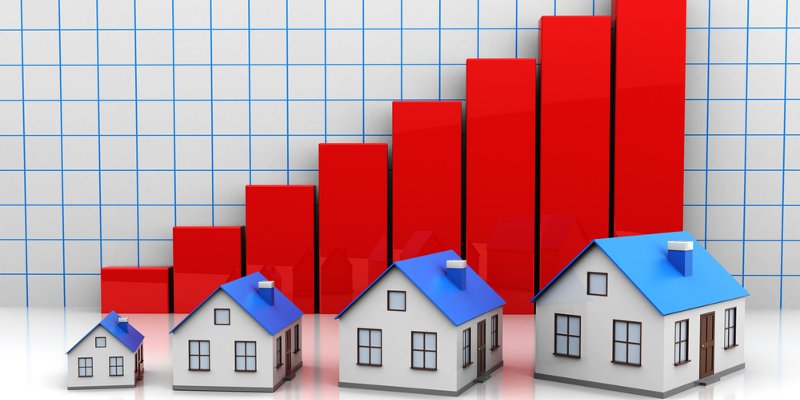The annual growth rate has slowed since mid-2016 and has remained under 5%, with the exception of October 2017, throughout 2017 and into 2018.

Average house prices in the UK have increased by 3.9% in the year to April 2018 (down from 4.2% in March 2018), the lowest annual rate since March 2017 when it was 3.7%, the ONS House Price Index has found.
The annual growth rate has slowed since mid-2016 and has remained under 5%, with the exception of October 2017, throughout 2017 and into 2018.
Jeremy Leaf, north London estate agent and a former RICS residential chairman, said: “These figures are interesting, albeit a little dated, in that they show house prices are continuing their more modest upward trend with little sign of correction any time soon.
“Behind the numbers bears out what we’re finding on the high street – transactions are falling while listings have increased but not making up for an historic shortfall whereas demand is relatively flat.
“As a result, the increase in house prices is more to do with the lack of supply of appropriate property in places where people most want to live rather than a marked improvement in confidence.
“Looking forward, we do not expect major change but do hope more sellers appreciate the difference between vanity and sanity when it comes to recognising these new market conditions.”
The average UK house price was £227,000 in April 2018. This is £9,000 higher than in April 2017 and £3,000 higher than last month.
Average house prices in the UK increased by 0.7% between March 2018 and April 2018, compared with an increase of 0.5% in average prices during the same period a year earlier.
Across the UK, all property types showed an increase in average price in April 2018 when compared with the same month in the previous year.
Semi-detached houses saw the biggest increase, rising by 5.3% in the year to April 2018 to £215,000.
The average price of flats and maisonettes showed an increase of 1.0% in the year to April 2018 to £202,000, the smallest increase of all property types.
Weaker growth in UK flats and maisonettes was driven by negative annual growth in London for this property type. London accounted for around 25% of all UK flats and maisonette transactions.
Mark Dyason, managing director of the specialist property finance broker, Thistle Finance, said: "Prices in London will by no means collapse but we are seeing a fundamental recalibration in the market as investors and buyers look for value elsewhere.
"The London market has little life left in it whereas certain regions around the UK, especially the South West, have a genuine spring in their step.
"What has traditionally been a one-horse race is now quite the opposite as the regions witness a significant influx of investment that would previously have stayed within the M25.
"A growing percentage of the development activity we are helping to finance is taking place in major regional hubs, which have rediscovered their mojo."
The main contribution to the increase in UK house prices came from England, where house prices increased by 3.7% over the year to April 2018, with the average price in England now £244,000.
Wales saw house prices increase by 4.4% over the last 12 months to stand at £156,000. In Scotland, the average price increased by 5.6% over the year to stand at £149,000.
The average price in Northern Ireland currently stands at £130,000, an increase of 4.2% over the year to quarter 1 2018.
On a regional basis, London continued to be the region with the highest average house price at £485,000, followed by the South East and the East of England, which stood at £325,000 and £286,000 respectively. The lowest average price continued to be in the North East at £130,000.
Kevin Roberts, director, Legal & General Mortgage Club, said: “The mortgage market is continuing to support first-time buyers onto the ladder with schemes like Help to Buy and shared ownership, but it’s still a struggle for many buyers and we can’t expect the housing crisis to resolve itself.”



